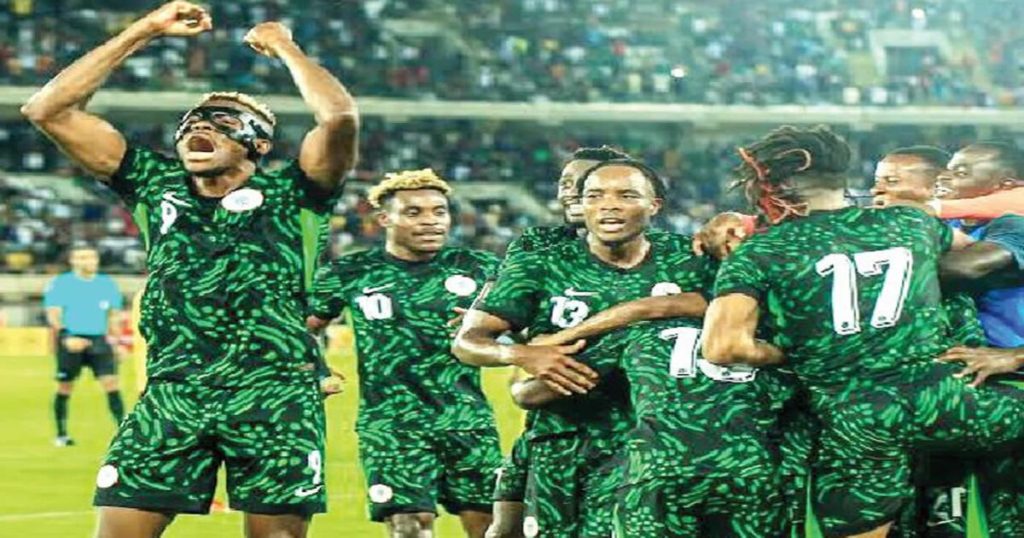Nigeria’s aspirations of securing a spot in the 2026 FIFA World Cup, their seventh appearance at the global football tournament, have suffered a significant blow after a 1-1 draw against South Africa in a crucial qualifying match. The encounter, held at the Free State Stadium in Bloemfontein, saw the Super Eagles unable to secure the vital three points needed to revive their fading qualification hopes. This result leaves their World Cup dreams hanging precariously, with a challenging path ahead to secure a place in the North American tournament.
The Super Eagles entered the match with a clear objective: a resounding victory to boost their dwindling chances of qualification. South Africa, on the other hand, aimed to maintain their comfortable lead atop Group C. Nigerian coach Eric Chelle made a key tactical decision by reinstating captain Williams Troost-Ekong to the central defense, after his absence in the previous match against Rwanda. However, the game started poorly for Nigeria. An early injury forced the substitution of full-back Ola Aina just eight minutes into the match, replaced by Bright Osayi-Samuel. This early disruption set an unfortunate tone for the Super Eagles.
The setback was compounded by a self-inflicted wound in the 25th minute. An own goal by captain Troost-Ekong gifted South Africa the lead. This unfortunate incident further dampened the spirits of the Nigerian side and placed them in a difficult position. Despite this setback, the Super Eagles rallied, demonstrating resilience and determination to find an equalizer. Their efforts were rewarded just before halftime. A hopeful cross from Fisayo Dele-Bashiru found the head of Fulham defender Calvin Bassey, who inadvertently directed the ball into the net, albeit via his arm, to level the scores.
The second half saw Nigeria dominating possession and actively seeking a winning goal. Chelle made strategic substitutions, bringing in Tolu Arokodare and Bruno Onyemaechi for Troost-Ekong and the ineffective Cyriel Dessers. Despite controlling the game, the Super Eagles struggled to carve out clear-cut scoring opportunities. The introduction of Chrisantus Uche and Samuel Chukwueze also failed to ignite the attack and find the crucial breakthrough goal. A further blow came when Wilfred Ndidi had to be substituted due to injury, further depleting Nigeria’s midfield options.
The match ultimately ended in a 1-1 stalemate, mirroring the result of the reverse fixture earlier in the qualifiers. This draw leaves Nigeria with a daunting task in their quest for World Cup qualification. South Africa now sits comfortably at the top of Group C with 17 points, holding a six-point advantage over Nigeria, who have accumulated 11 points from eight matches. The Super Eagles face a precarious situation, requiring near-perfect results in their remaining games to maintain any realistic chance of qualifying.
Nigeria’s path to the 2026 World Cup now hinges on winning their remaining matches against Lesotho and Benin Republic. Furthermore, they must hope for favorable results elsewhere in the group, with their rivals dropping points. This scenario presents a formidable challenge for the three-time African champions, who must overcome the odds and produce a string of exceptional performances to resurrect their World Cup aspirations. The draw against South Africa has significantly complicated their qualification journey and leaves them with little margin for error in their upcoming crucial fixtures.














